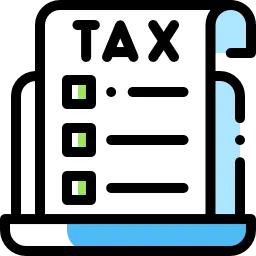Blog Details
Key Tax Strategies for Small Businesses
Running a small business involves numerous responsibilities, and managing taxes is a critical aspect that requires careful attention. Effective tax planning can help small businesses minimize their tax liabilities, maximize deductions, and optimize their financial resources. In this blog post, we will explore some key tax strategies that can benefit small businesses and contribute to their long-term success.

Organize and Maintain Accurate Financial Records:
Keeping detailed and up-to-date financial records is essential for any small business. Maintaining accurate records of income, expenses, invoices, receipts, and other financial transactions not only helps in understanding the overall financial health of the business but also simplifies tax preparation and minimizes the risk of errors or omissions.
Choose the Right Business Structure:
The legal structure of a small business can significantly impact its tax obligations. Depending on the nature and size of the business, options such as sole proprietorship, partnership, limited liability company (LLC), or S corporation might be available. Each structure has its own tax implications, so it's important to consult with a tax professional to determine the most advantageous structure for your specific circumstances.
Take Advantage of Small Business Deductions:
Small businesses are eligible for various tax deductions that can help reduce their taxable income. Some common deductions include expenses related to home offices, equipment and supplies, travel and entertainment (within certain limits), health insurance premiums for employees, and contributions to retirement plans. Understanding and utilizing these deductions can significantly lower your tax liability.
Leverage Tax Credits:
Tax credits are a powerful tool for small businesses to offset their tax liabilities. Unlike deductions, which reduce taxable income, tax credits directly reduce the amount of tax owed. Examples of tax credits available to small businesses include the Research and Development (R&D) Tax Credit, Work Opportunity Tax Credit (WOTC), and Small Business Health Care Tax Credit. Explore the credits applicable to your business and take advantage of them to reduce your tax burden.
Plan for Estimated Tax Payments:
Small businesses typically make quarterly estimated tax payments to cover their annual tax obligations. Accurately estimating and planning these payments can help avoid penalties or interest for underpayment. Regularly review your income and expenses, consult with a tax professional, and ensure you are making timely and accurate estimated tax payments throughout the year.
Consider Section 179 Deduction and Bonus Depreciation:
The Section 179 deduction allows small businesses to deduct the full cost of qualifying equipment and assets in the year of purchase, rather than depreciating them over several years. Additionally, bonus depreciation allows businesses to take an immediate deduction on new equipment and qualifying assets. These provisions can provide significant tax savings, so it's worth exploring if they align with your business needs.
Consult with a Tax Professional:
Tax laws are complex and ever-changing. Seeking professional advice from a qualified tax professional or certified public accountant (CPA) specializing in small business taxes can be invaluable. They can help identify specific tax-saving opportunities, navigate complex regulations, and ensure compliance with applicable laws.
Conclusion:
Implementing effective tax strategies is crucial for small businesses to optimize their financial resources and minimize tax liabilities. By organizing financial records, choosing the right business structure, taking advantage of deductions and credits, planning for estimated tax payments, considering favorable provisions like Section 179 and bonus depreciation, and seeking professional advice, small businesses can navigate the intricacies of the tax landscape with confidence. Remember, every dollar saved in taxes can be reinvested in your business's growth and success.
Related Blog
